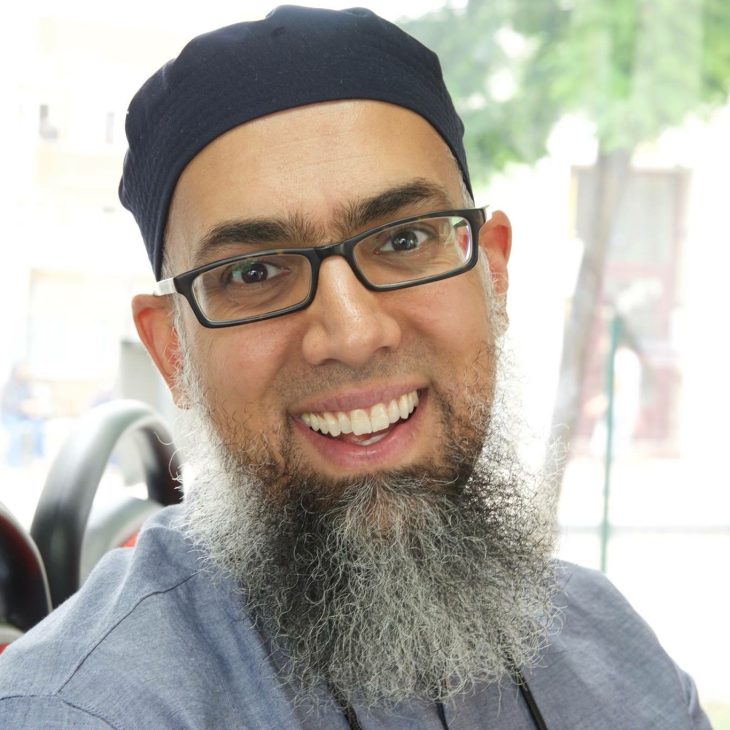The Best Ramadan Ever?
May 19, 2020

Omer Bajwa is the Director of Muslim Life in the Chaplain’s Office at Yale University – a 12-year veteran of Yale’s much lauded chaplaincy program. He earned his Graduate Certificate in Islamic Chaplaincy from Hartford Seminary, and he has been engaged in religious service, social activism, and educational outreach since 2000.
“This could be the worst Ramadan ever, right?” asked one of my students. Indeed, the global Covid-19 lockdown has presented unprecedented restrictions, especially during the blessed month of Ramadan. I have honestly had my own anxieties about how disappointing and dislocating this Ramadan would be.
I was blessed to grow up regularly attending Iftars at friends’ houses and avidly attending Tarawih prayers at my local masjid. My Islamic seminary studies further deepened my love for eating, studying, and praying with my friends, peers, teachers, and elders. In my professional life, as a university Muslim chaplain, I have cherished serving my Yale Muslim community, through campus Suhurs, Iftars, Halaqas, and Tarawih prayers in our on-campus musallah. What am I going to do now? How am I going to stay personally connected and spiritually uplifted in isolation? These are not unique questions – many of us have been asking them to ourselves, to our friends and to our community leaders.
The current challenges for so many of us emerge from some underlying existential anxieties: How and why did Allah let this happen? What if I get sick? What if I lose my job? When are schools going to reopen and what is going to happen to my children’s education? When can I visit my family and friends again? When will things get back to normal? What’s the “new normal” even going to look like? These fears are intertwined with deeper, often unspoken, feelings of displacement, exhaustion, loss, misery, and grief.
It is moments like this where I need to remind myself and those who seek my pastoral counsel that our Islamic intellectual and spiritual tradition has bequeathed wisdom to help navigate life’s turbulence. The legendary Shaykh Abdal-Qadir al-Jilani taught that there are “hidden gifts in all ‘unpleasant’ happenings.” Those gifts could perhaps be purification from sins, illumination of the heart, the refinement of character, the maturation of virtues or the ascension of spiritual degrees.
Practically speaking, as this pandemic has restricted us from engaging in communal Ramadan activities it has forced us to turn inward. Considering the Zahir (exterior) vs. Batin (interior) paradigm that our tradition offers us, this lockdown presents us a with unique opportunities for deeper spiritual growth through patient introspection and self-assessment.
Over the past two months of quarantine, my colleagues and I have discussed an emerging “ministry of perspective” that we have been sharing with our congregations and communities. This perspective shift requires us to embrace stillness, which may have been seemingly impossible in today’s frenetic and relentless hustle culture. This counter-cultural resistance of thoughtful and heartful deliberation is what we need in this discombobulating moment. In our Islamic tradition, this type of compassionate consciousness is connected to the concept of Muhasaba or deep self-reflection and reckoning, which is an essential element of meaning-making.
Thus, I invite myself and others to reconsider how “bad” this Ramadan has been, by reexploring the opportunities it has offered us. Free from the potential distractions of social Iftar obligations and the spiritual danger of Riya’ (ostentation), I am now freer to focus on my own spiritual health, or lack thereof, by worshiping with my family or in solitude. This could help resuscitate my ailing spiritual heart by allowing me to think deeply and intimately about my relationship with my Lord: is it fractured? Have I drifted? Am I sincere?
The goal is for each one of us, amidst this prevailing sense of disequilibrium, to move to a place of restoration. Then from that personal restoration, we can reexamine our world. Even after this pandemic subsides, there is no going back to “normal” because that normal was not working for most of the world. Deep structural problems, from food insecurity, to broken healthcare systems, to inequitable labor markets, to climate degradation, to avaricious industries, all point to profoundly unethical and unsustainable systems of power that are manipulated by privileged and soulless elites.
We must reimagine and create a better world. To me, that is a potentially hopeful message and call to action for this pandemic Ramadan—may the isolation ultimately liberate my mind and soul to fight for a world that is more pleasing to my Lord, and may Allah bring us closer to Him by making our struggles as means for spiritual openings. Ameen.
Share
Related Articles
American Civic Life
When Making Exceptions for Ramadan is No Longer the Exception
American Civic Life
People Across America Share Stories of Their Interfaith Ramadan Experiences
American Civic Life
In Ramadan’s Spirit Of Hope, New York’s Muslims Cautiously Open Mosques



